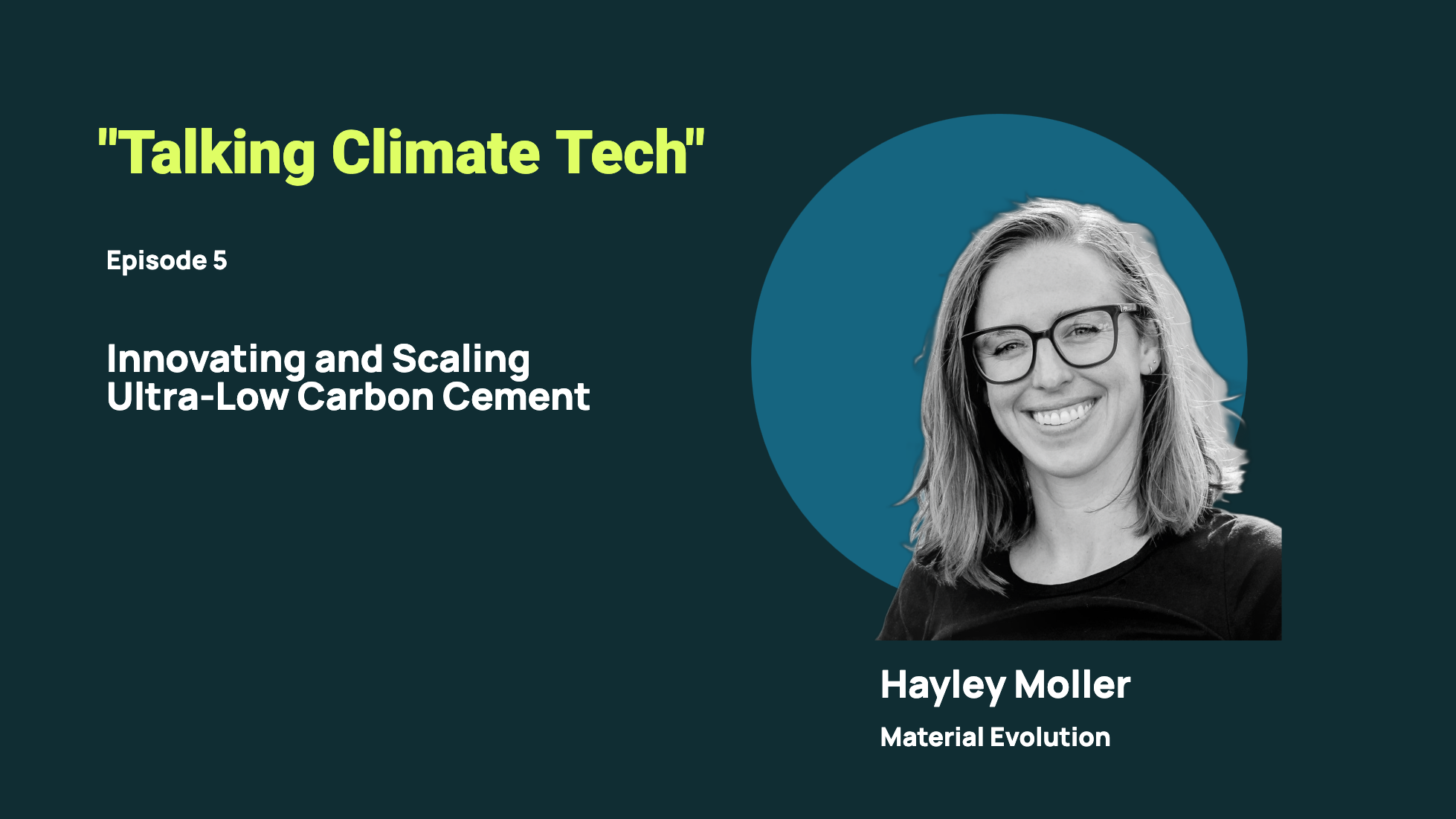Talking Climate Tech 038
💸 Startup News | 👁️ Carbon Eye | 👀 Geothermal Visibility | ♨️ Data Centre Heat | 👥 Impact 02 Event | 🪸 Coral Tech |⚡ Pylon of the Month

💸 Startup News
Back to one of our earlier formats for the headline section. x3 startups that have caught my watchful eye. 👀
Sometimes good things come in small sizes, too!
Barocal 🇬🇧
Demand for cooling is rising, whether for personal comfort, the built environment, food and drink, medicines, etc. The cooling industry, like any other, is under pressure to reduce its product emissions and environmental impact.
Barocal has raised approx. £4m to date from equity and EIC Accelerator grants.
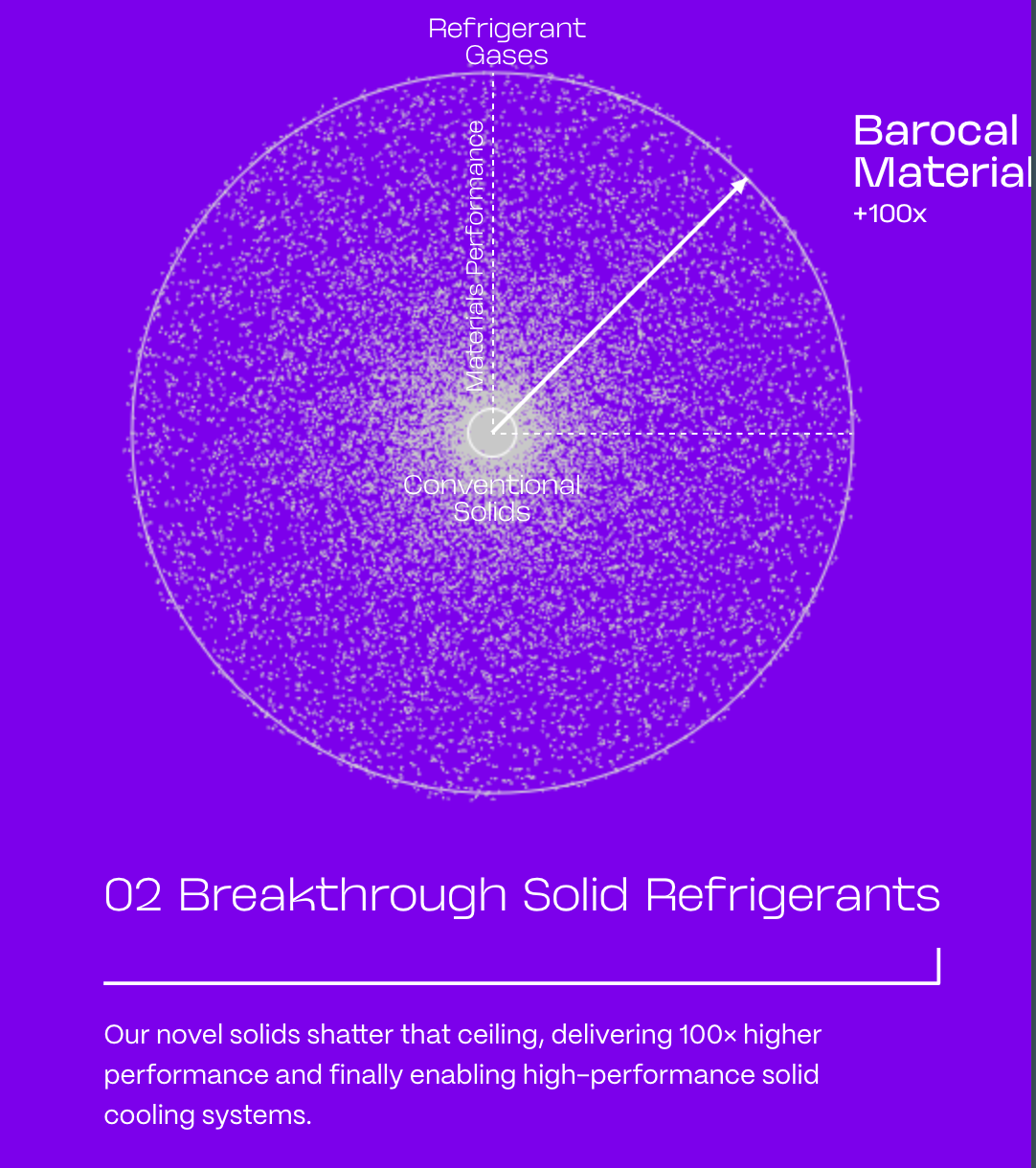
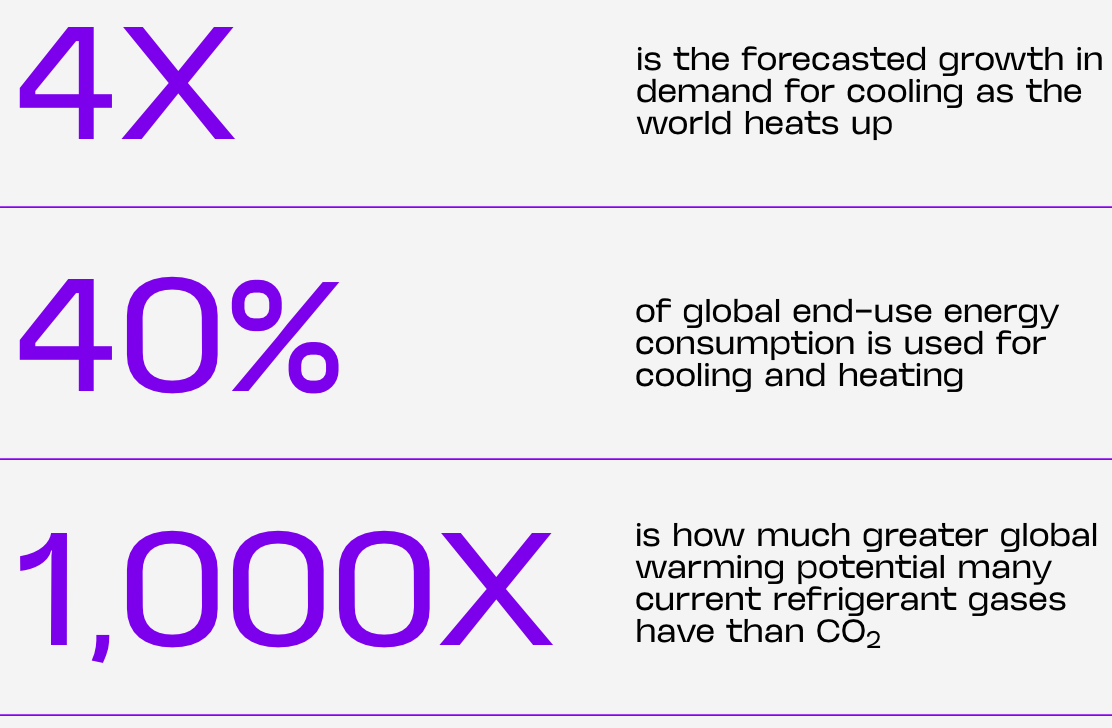
Image Credi: Barocal
Moving away from gas-based systems - refrigerant gases with high global warming potential - to solid systems, this spin-out from the University of Cambridge is now moving forward to market. With a modular system configuration, inexpensive organic materials, and finally with thermal performance to match gas, it looks promising.
What's in it? A powder mix of carbon, hydrogen and oxygen, with plastic crystals that create thermal changes under different pressures. Barocaloric materials. 😉
Vaire 🇬🇧
Right this one is rather deep, but I can at least understand the potential outcome and what impact such an innovation could have. Especially referencing some of our previous notes on Data Centre compute waste heat. They have raised approx. $10m to date to get this revolutionary tech along the roadmap.
We are staring with the term 'reversible computing'. Hmm, okay....lets' get to the route of the problem;
Existing AI infrastructure generates too much heat...the energy demands of classical chips are unsustainable, driving up costs and using more and more water for cooling. For every calculation a classical chip makes, it takes inputs, generates outputs and then releases, as heat, the inputs it no longer needs.
Makes sense, what about the 'reversible compute'?
In reversible computing, instead of running a calculation in only one direction (inputs followed by outputs), the computing can be done in both directions. This means instead of having to emit the input information as heat, it's recycled, powering new calculations.

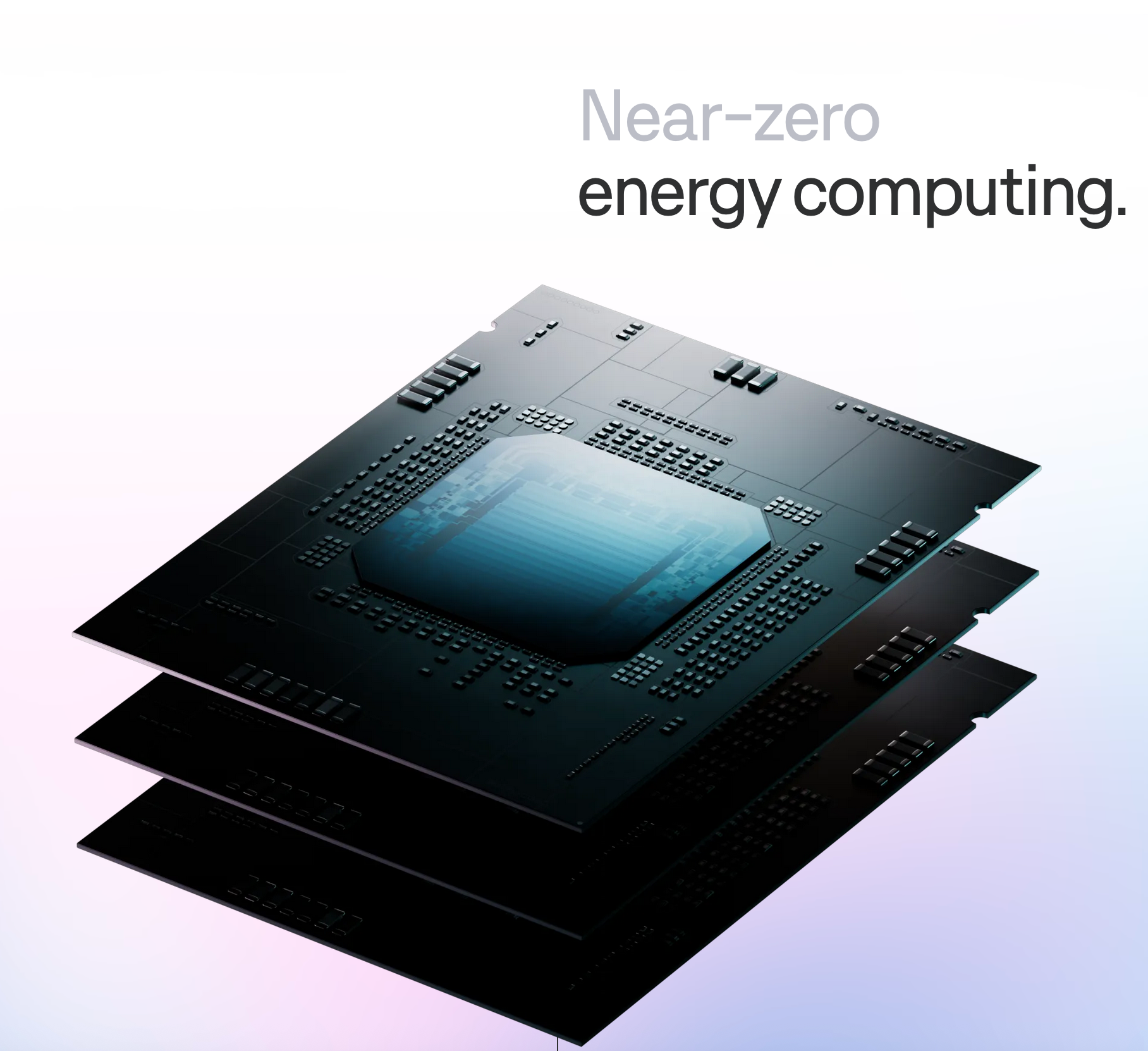
Image Credit: Vaire
Sounds simple and very effective. And looks pretty sexy for a chip right? No one has ever done it before, and its widely perceived to be years away, even with all the chip design, material and manufacturing advancements in recent years.
Conceptualised since the 1960s, some progress by MIT in the 1990s, its quite the holly grail. If you want to get into it, including Moore’s Law, Koomey’s Corollary, CMOS and Clocking Speeds, good explainer on Vaire here and here. More from Vaire themselves, here.
🇸🇪 Blixt
Another step-change evolution in aged technology. The humble mechanical circuit breaker, 100 years old and still doing its thing. What if someone made them digital?
Solid state circuit breakers fill the needs of existing circuit breakers, remote controls and smart meters, in one single device. It is x1000 faster and safer and opens up a new world for real-time software services
Well that sounds like a very obvious logical development in the digital age and the significant transition from AC to DC. And of course, they are everywhere.
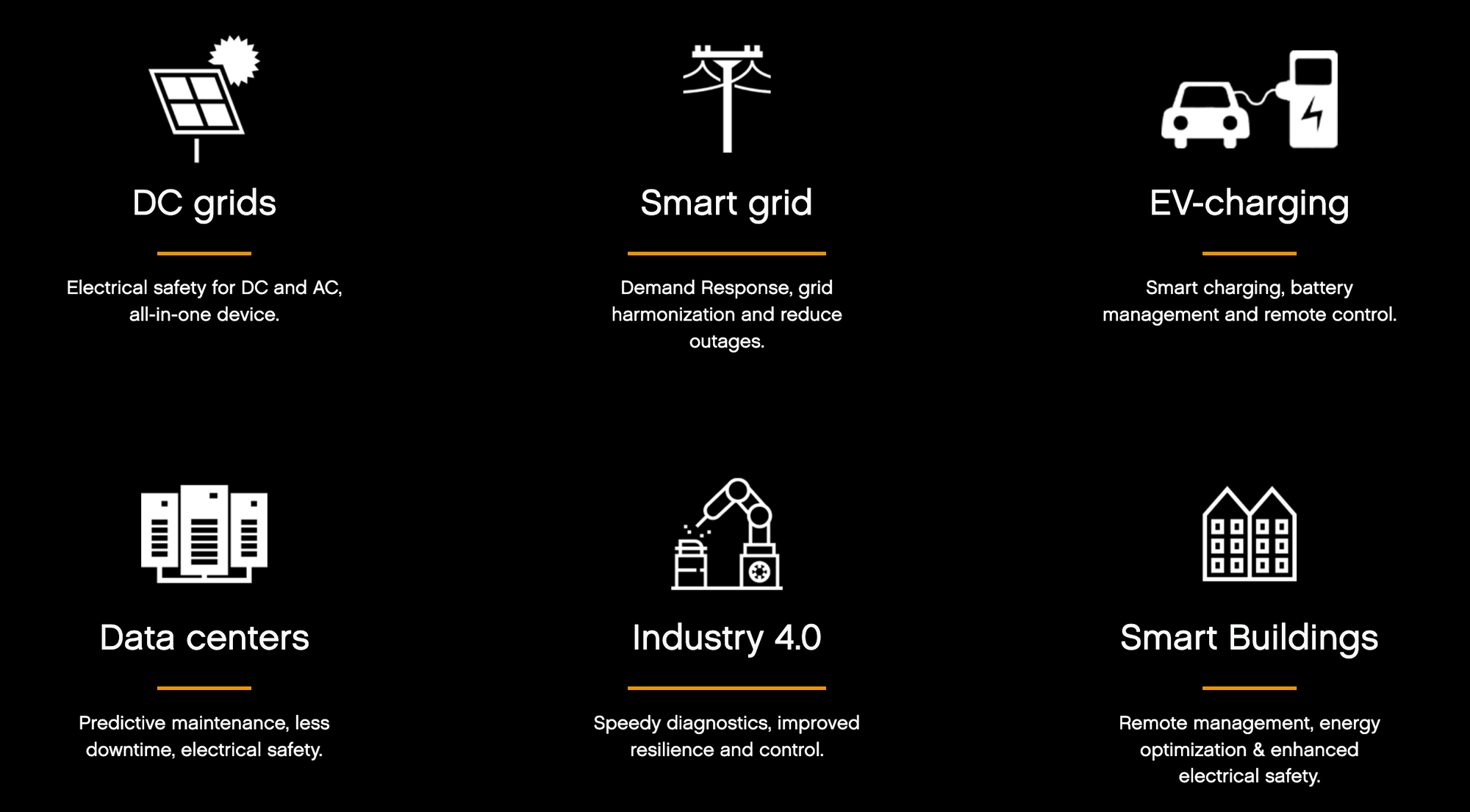
With more DC renewable generation [wind + solar] and consumption [EV, servers etc], there are challenges integrating with AC infrastructure - multiple conversion steps and substantial energy losses, plus fast current rise, that mechanical switchgear cannot handle, creates potential fire risk and network collapse. Further reading here.


Image Credit: Blixt
I hope you have enjoyed reading this week's post - currently, Talking Climate Tech is a free newsletter - you can always become a supporter by popping something in the tip jar and keeping the coffee machine stoked!
🔎 Deeper Dive
Carbon Eye in the Sky 👁️
Great to see innovation coming out of UK Universities.
Edinburgh scientists and the MicroCarb satellite are set to play a key role in the launch of Europe’s first satellite dedicated to monitoring carbon dioxide levels across the world’s cities and urban areas.
Orbiting at 650km above the Earth, MicroCarb will observe the flow of carbon dioxide gas from natural and man-made sources and its absorption by the atmosphere, ocean and land.
More here on the partnerships, expect data mid-2026.
Geothermal Visibility 👀
Interesting article from Energy Voice, focusing on the challenges and opportunities Geothermal in the UK faces. A solution for heating, cooling, underground thermal energy storage, and sometimes power generation, it's a Swiss Army Knife of sovereign resources. ♨️
Yet, it's struggled to gain traction. Primarily, as we turned away from it, towards fossil gas in the 80s, after exploratory drilling for geothermal in the UK and Northern Ireland.
Now the proposition is more compelling due to decarbonisation and energy security challenges. Yet the signal from the government remains relatively weak, and policy reform is in its nascent stages.
The sector and cross-sector stakeholders are now coalescing behind the newly formed Geothermal UK coalition body, which has been a great project to be involved with personally.
Ross Glover, CEO, Star Energy, on the government's role....
...turbocharge a geothermal industry that could supply all of the heat for major cities like Manchester, Newcastle, Southampton.
Star Energy is attempting to transfer skills and its business model from hydrocarbons to geothermal heat offtake. This transfer is key in the wider context of a just transition for the UK's oil and gas workers. He raises an interesting point;
This is the perverse world we live in. We spend a pound on oil and gas and we get tax relief. We spend a pound on geothermal, something that the country wants us to do, and the government wants us to do, and we get no relief whatsoever.
A lot more work needs to be done to facilitate the right conditions to crowd investment in and start delivering projects at scale.
Data Centre Heat ♨️
I keep talking about decarbonising heat; it's not high enough on the government agenda, and it's a bigger final energy use in the UK than both Transport and Power Generation.
Referenced in further detail in this Simon Todd article from a few months back for Konfab.

Guest Article - Simon Todd
We need to be utilising all that valuable waste heat that currently is just exhausted into the atmosphere and water systems. Data Centres can play a key role in that, while also reducing cooling loads by designing heat for offtake.
Cooling systems use approximately 45% of a data centre's energy, as noted in this article from Mitsubishi.
487 data centres already operational, the UK ranks as the third-largest market globally, trailing only the US and Germany.
Once we start thinking with a more integrated systems approach between data centre planning, waste heat, heat networks and the opportunities of underground thermal storage, we will really start to scale a change in our approach to heat.
🏡 Konfab News
It's all about the next Climate Tech Impact_South 02 event!
Reminder, in case you know anyone down South!
Quite the line-up - our x2 main speakers from the South region, plus a special colab pilot on Lorefully's new AI technology;
▶️ Real-time insights from events / Data analysis
▶️ Predictive trends / Enhanced decision-making
▶️ Optimised engagement / Interactive events
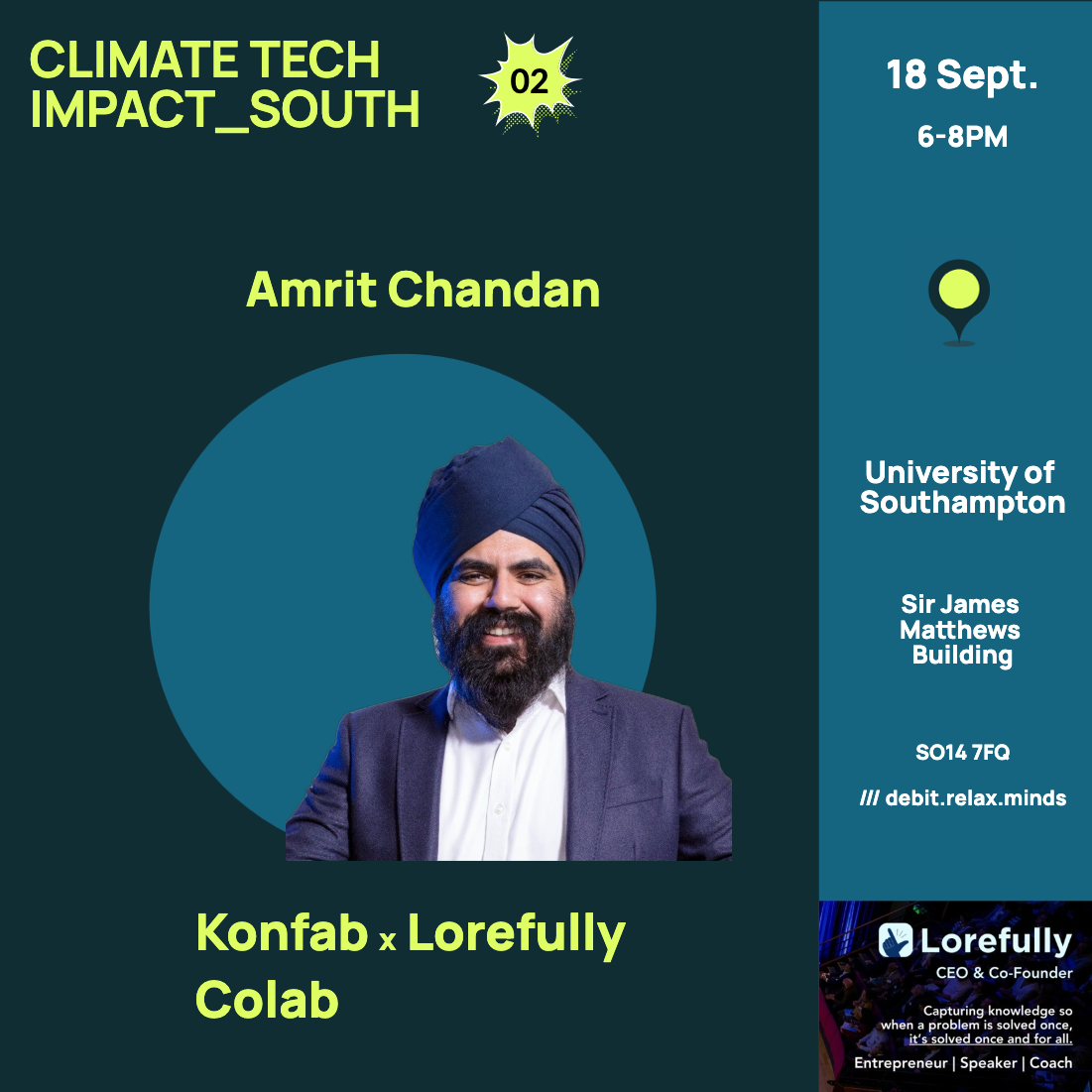
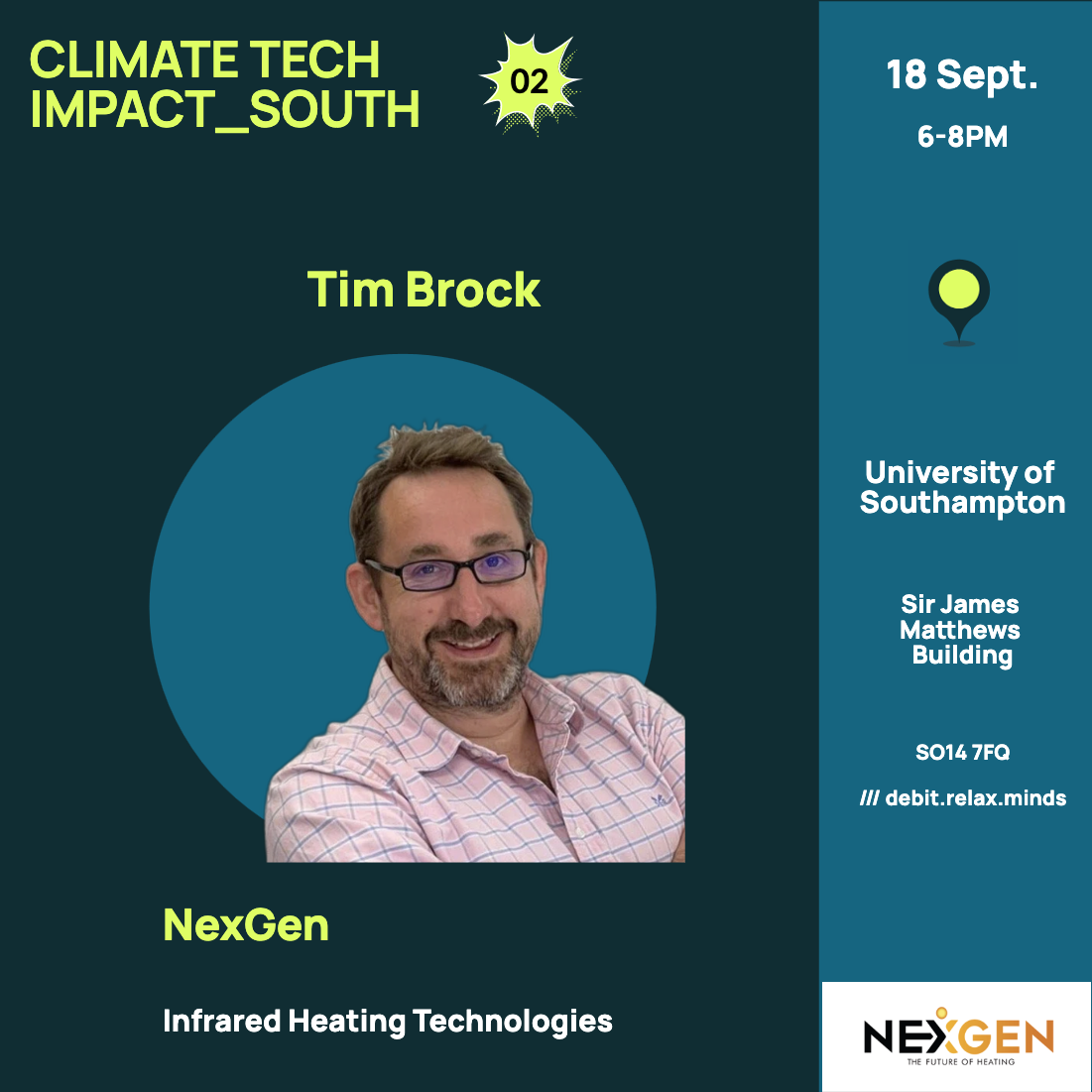
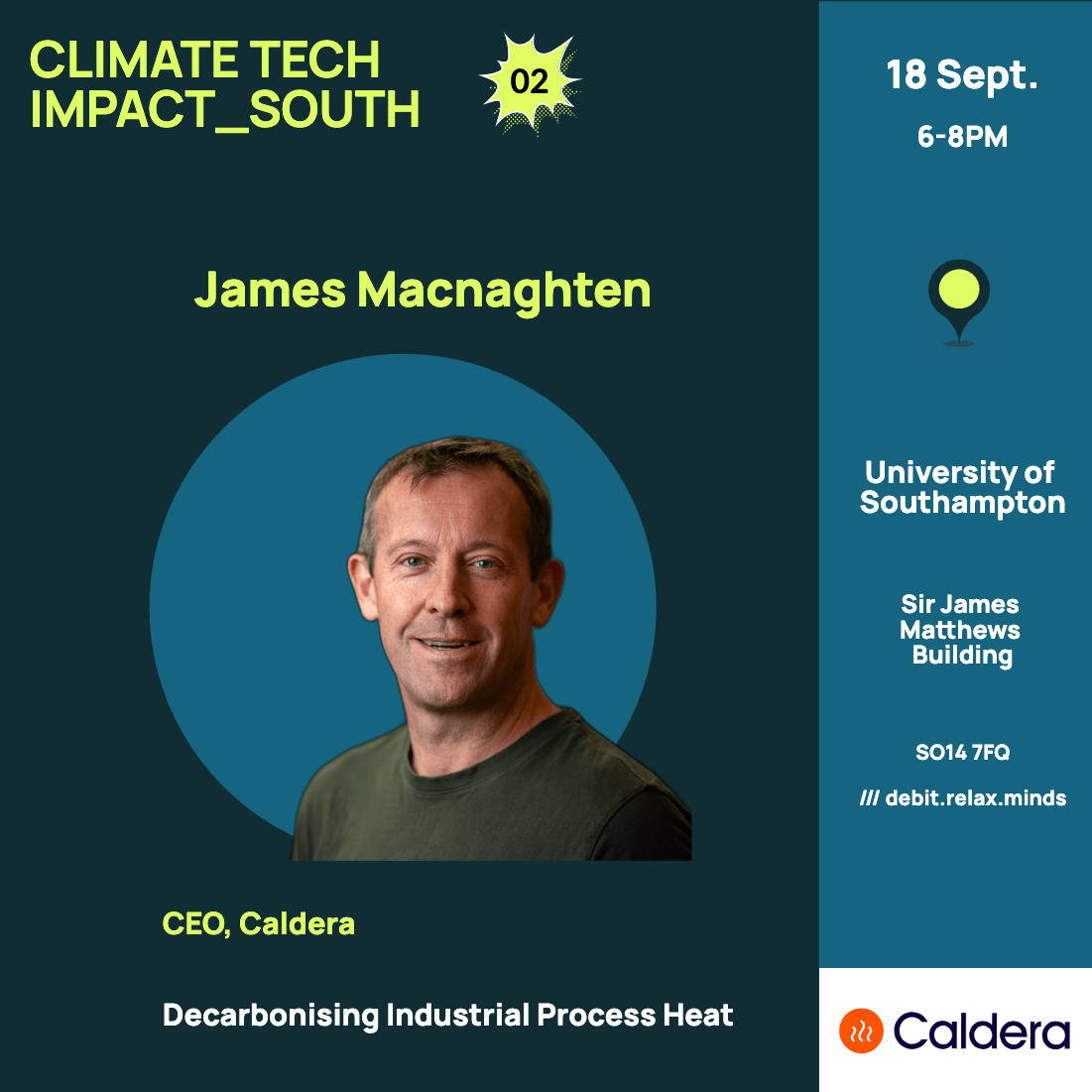
Sign-up via the Eventbrite link here.
🎙️ Podcast EP 05
Also, in case you haven't dived in yet and want to hear more about making cement with no fossil-fuel combustion, concrete, Miley Cyrus and all sorts in between, head over ⬇️ and check out my chat with Hayley Moller.
😃 Good Stuff
Coral Tech 🪸
The much derided anti-humanrights and petro-state, Saudi Arabia 🇸🇦, does have some good stuff going on with all that black money it's saved up.
They have committed to 50% renewable generation by 2030, and have been splashing the cash on GW-scale solar, more on those here.
Not perhaps the country you would be expecting to steward global coral technology protection and restoration, but here we are. They are now the lead, taking over from the USA 🇺🇸 on the International Coral Reef Initiative.
Coral reefs support 25% of all marine life and generate nearly $10 trillion yearly in goods and services
Full breakdown in this report, but the types of technology deployments used to protect these vital ecosystems include: 3D printed reefs, underwater drones with AI detection systems, smart monitoring buoys, acoustic monitoring, DNA sampling and others.
Very cool - tech for coral 👏
⚡Pylon of the Month
As the weather starts to cool down, finally we have some rain, and the light fades, I thought this beauty of a shot in this week's Tower of Power set the mood nicely.
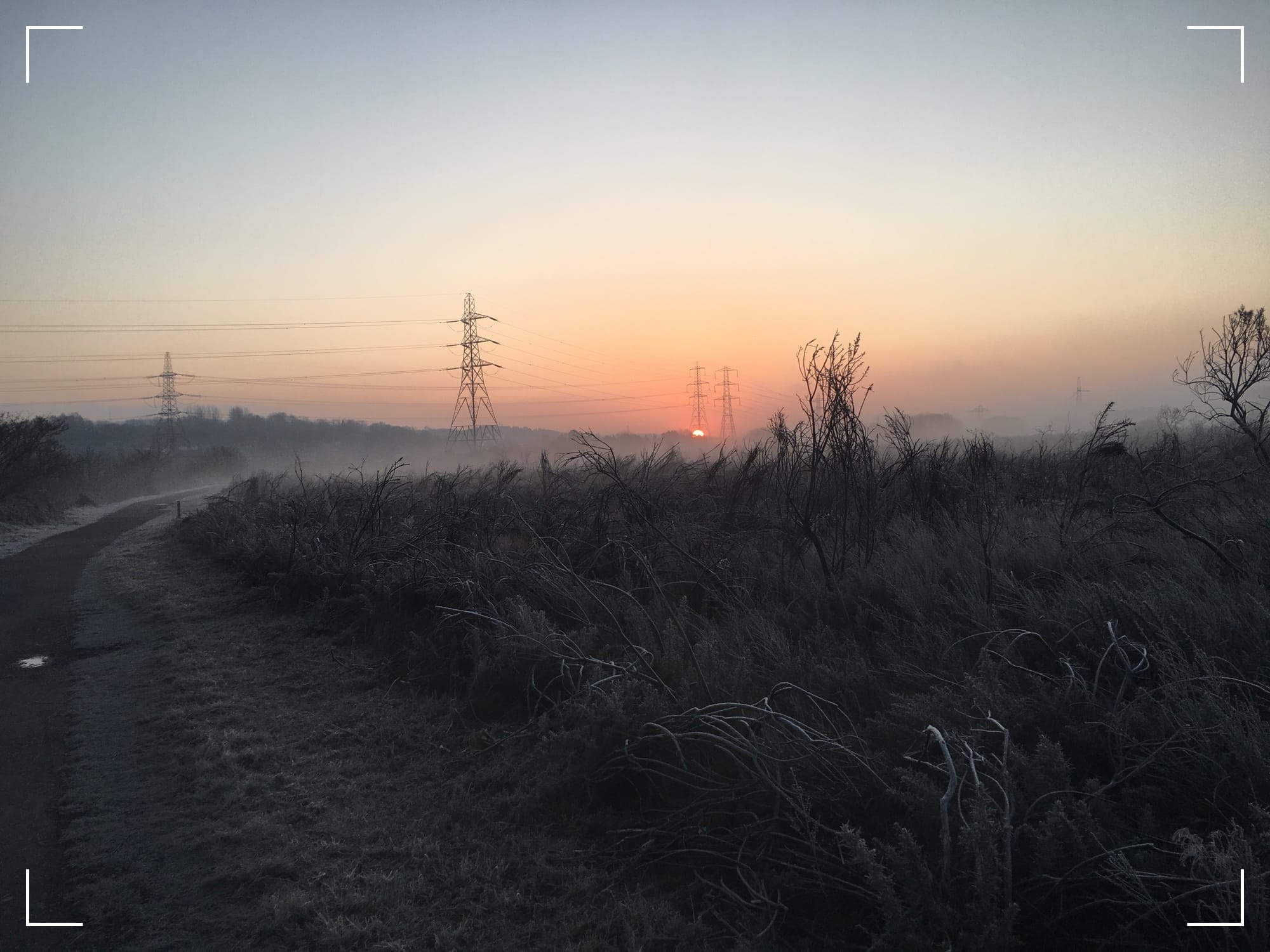
A rather magical scene from somewhere up on the south bank of the River Tyne. Not much in the way of technicals on this one either, although we are led to believe they are part of the legacy grid connection points for the now-defunct Stella North and South coal-fired power stations, 240MW & 300MW respectively.
Thanks for your time, interest and support as always, let's keep pushing forward - remember, the momentum is unstoppable despite everything you might see and hear! 🌍
Kane




